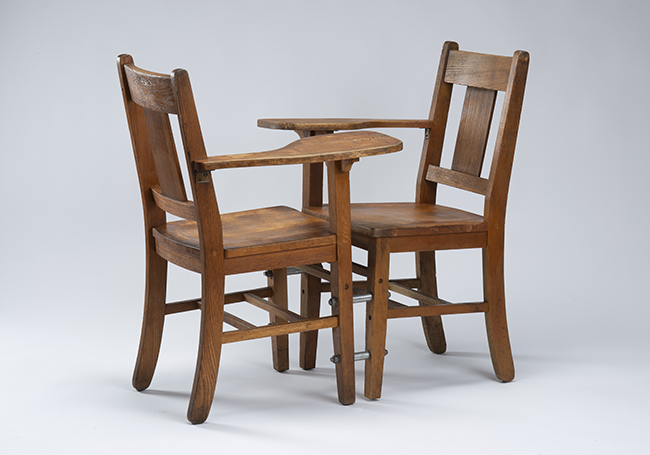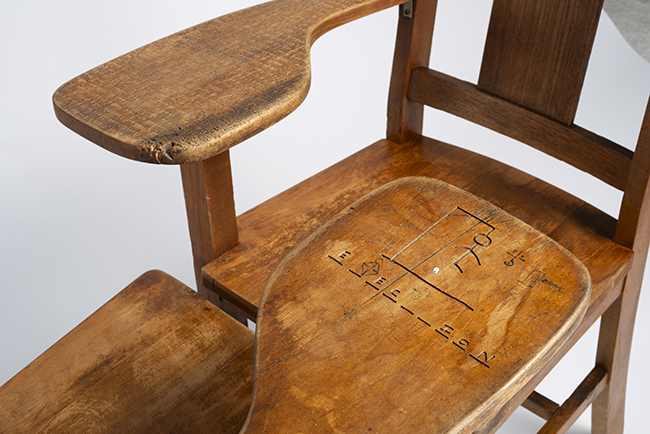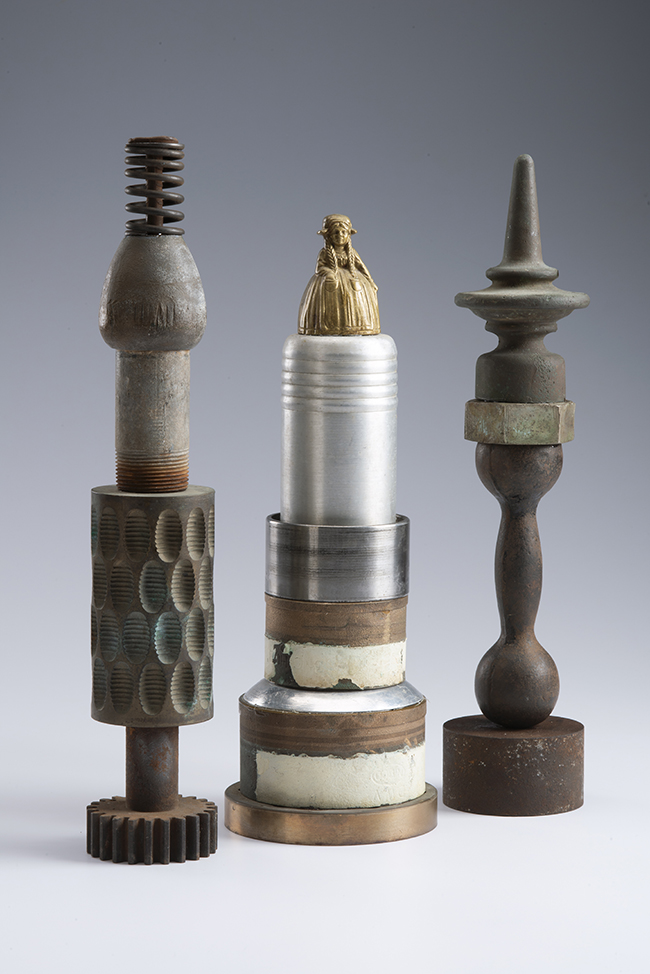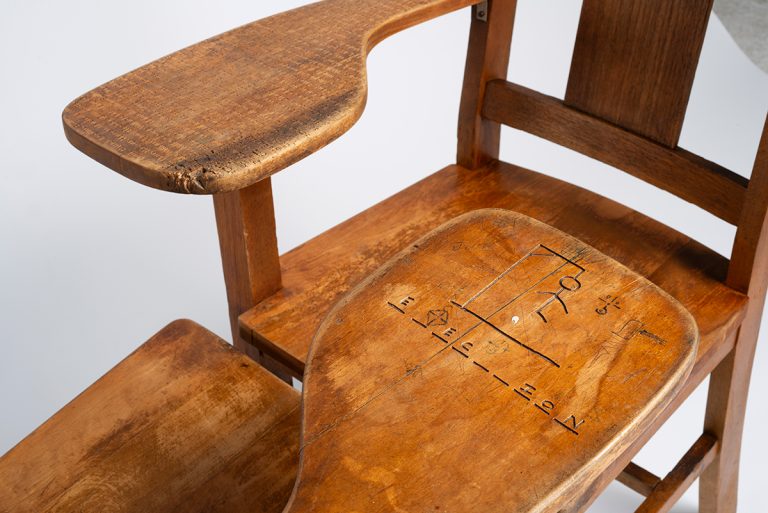Clint Imboden, born in 1953 in St. Louis, Missouri, is a Bay Area artist whose work speaks to nostalgia, history, and social commentary. Now based in Oakland, California, Imboden creates intricate 3D artworks that take everyday objects—tools, toys, and bits of Americana—and turn them into commentary on political and social issues. His work offers a view into a world shaped by objects most people overlook but that carry layers of meaning for him. Imboden’s art is both visually engaging and thought-provoking, a blend of the familiar and the profound.

Growing up, Imboden was immersed in a world of collecting. His parents had a fascination with kitsch and Americana, and their appreciation for quirky, everyday artifacts deeply influenced his artistic style. This early exposure to collecting has become a critical part of his practice. Now, each week, he scours flea markets and estate sales, seeking out items with a history. He is particularly drawn to items that might have been found in working-class homes of the mid-20th century, like hand tools, toys, and kitchenware—objects that reflect the heart of blue-collar America.
In his studio, Imboden takes these neglected items and transforms them. His works aren’t just random collections of objects but carefully crafted installations that juxtapose the original function of the item with his own commentary. Imboden often uses repetition in his work, creating installations that turn hundreds of an object into something new. These abstract forms not only display his obsessive collecting but also reframe everyday items as art.

Imboden’s use of text is central to his art. In the wake of the 2016 election, he started incorporating laser etching into his process, carving words into the objects he collected. This move gave his art a political edge, transforming each piece into a message or question for viewers. Text, combined with objects that often hold nostalgia or sentimental value, allows him to critique or reflect on the political climate without losing his art’s accessible quality. The result is powerful: everyday objects become artifacts of social dialogue.
One of the most interesting aspects of Imboden’s work is its connection to blue-collar life. Vintage tools, for instance, don’t just serve as objects in his sculptures; they represent the history and hands that used them. His installations transform tools into symbols, grounding his art in the stories of workers, families, and tradespeople. By giving these items a new context, Imboden reminds viewers of their inherent worth, even if they’ve been discarded or forgotten.

Imboden’s artworks have been exhibited both in the U.S. and internationally. His works have been acquired by major public collections, including the San Antonio Museum of Art, Museu de Arte Moderna in Rio de Janeiro, and the Milwaukee Art Museum. These collections demonstrate that Imboden’s message resonates far beyond the Bay Area. His installations can also be found in public spaces in California, where he’s been commissioned for projects by SF Curran, Hyatt Place Hotel, and Sherwood Design Partners, giving his work a broad public audience.
The process of collecting, for Imboden, is almost ritualistic. His artist statement reflects this dedication to finding “overlooked objects” and bringing them to his studio, where they await transformation. Some of these items, like screwdrivers and measuring tapes, are acquired in large quantities, underscoring his fascination with repeated forms. This repetition not only serves an aesthetic function but also creates a sense of rhythm and pattern, making his installations feel immersive and hypnotic.
Through his work, Imboden invites viewers to question what value means in a disposable world. Why do we hold onto certain objects but discard others? How can an object that seems trivial or outdated become a vessel for deeper messages? Imboden’s art is a way of answering these questions without words, using physical objects and textures to open a dialogue about worth, memory, and society.
His art is both accessible and layered, rooted in nostalgia yet forward-thinking in its commentary. Each piece Imboden creates reflects a complex conversation between past and present, personal memory, and cultural history. Imboden’s work is ultimately a tribute to the power of the everyday, showing that objects we often ignore hold stories worth exploring. Through his vision, forgotten tools and toys become agents of reflection, reminding us that sometimes, the most potent messages come from the things we tend to overlook.

